Select Other Languages French.
A review of how some of history’s greatest civilizations' collapse presents ominous parallels with our present predicament.
Fall of Civilizations: Stories of Greatness and Decline by Paul Cooper
Harper Collins 2024
ISBN 9781335013415
[Tunis] In the early 2010s, a typical American or European might still sip their morning coffee while scanning headlines reporting multiple conflicts simmering distantly, before hopping into a car and heading to an office job. Despite a previous decade of unintelligible foreign occupations bunched under the rubric of waging war on terror, life in the US remained mostly good and affordable. Citizens were sheltered from instability by over-the-horizon, seldom-analysed dynamics like the exorbitant privilege of the dollar as the global reserve currency. There was little apparent need to look under the hood.

Today, a spate of new books attempts to explain our suddenly destabilized world. Climate change and new trade tariffs have skyrocketed the price of that morning coffee, while the distant conflicts multiplied, edged closer and, in cases like Syria and Yemen, turned out to be proxy conflicts in a global struggle that, year on year, becomes more blatant. Professionally, the worker has had to adapt, learn new skills, perhaps even become freelance or a digital nomad, while glancing over his shoulder at the arrival of revolutionary, AI-enabled suites of office technologies marketed as complementary, but which are already displacing human labor.
This shift has produced profound anxiety as the great unspoken agreement between citizen and state splits apart. It also generated a new book genre, blending current affairs, history and an analytical catastrophology. Titles like The Sixth Extinction, The Seneca Effect, The Long Emergency and End Times purport to answer how we got to what historian Paul Cooper calls the “penumbral age,” and how to negotiate societal collapse.
Empire eats empire
Led by a fascination with ruins and the effects of time, Cooper’s Fall of Civilizations: Stories of Greatness and Decline seeks to divine how our civilization will end through examining the faltering of others.
It is also something of a publishing phenomenon. Cooper, who has authored two novels, managed to hack both academia and publishing by producing a book out of the demand generated by a giant social media audience: a series of viral tweets built up a podcast followed by tens of millions. Resisting conventional wisdom that attention spans are short and can only be captured by succinct content, Cooper’s multi-hour podcasts consist of pensively voice-overed, multi-disciplinary narrations, which overlay archival material about the demise of great civilizations. In the book, he sets out to examine the causes behind the moment when “the future was cancelled.”
“A ruin is a paradox,” Cooper writes at the start of his resolutely non western-centric narrative, which sweeps from Sumeria and Assyria through Byzantium and Vijayanagara, to conclude with civilizations in India and the Easter Islands. “Each one shows us the fearsome power of time while simultaneously standing in defiance of it.”
What it also shows is European colonialism’s ability to demolish indigenous civilizations. Being replaced by western powers was the fate of Carthage, several Chinese dynasties, the African Songhai empire and Arab-African Sufi orders like Sudan’s Mahdists and the Libyan Sanussis. The Ottomans were one of the final non-European empires to hang on till the early decades of the 20th century, perishing in the vortex of a world war, alongside the Russian and Austro-Hungarian empires.
Archaeological flâneurie
There is something compellingly seductive about the ruined remnants of a once-mighty but entirely forgotten civilization. When Xenophon’s Greek mercenaries, fleeing a Persian army in 401BC, paused to gape at the ruins of Nimrud, it was already covered in amnesia.
Italian traveller Cyriacus of Ancona established archaeological flâneurie as he wandered through the ruined ancient cities of the early 15th century Levant, documenting the shifts in his internal psychic landscapes. Cooper also relishes his peregrinations amid the rubble of former cities whose societies shape-shifted into something new after their fabric disintegrated and buildings fell into disuse.
Ruins inspire and humble us in equal measures. Austen Layard, a troubled Victorian youth, embarked on a career in Assyriology after visiting Nineveh: “Desolation meets desolation,” he wrote. “A feeling of awe succeeds to wonder. For there is nothing to relieve the mind, to lead to hope, or to tell of what has gone by. These huge mounds of Assyria made a deeper impression upon me, gave rise to more serious thoughts, and more earnest reflexion, than all the temples of Balbec and the theatres of Ionia.”
Often, ritualistic destruction was inflicted on emblematic cities for no purpose other than to pulverize them. Elam, Carthage and the Chinese dynastic city of Luoyang were destroyed as a means of laying their myths to rest. Like the Romans did in Carthage, Ashurbanipal scattered salt over Babylon so that nothing could grow again out of the land of his challengers.
A vivid antiquity
Cooper segments his narrative into three periods: the Ancient World, the Middle Age and what he calls When Worlds Collide. This last section covers the coming of modernity and “the great mass extinction event of human societies that took place during the colonial period… the peoples that were ground into dust to make way for modernity.”
Cooper skillfully extracts scenes fossilized in history. Phoenician explorers watch erupting volcanoes disgorge rivers of lava into the night’s dark seas off the coast of what is today’s Cameroon. This mystical scene occurred during a likely circumnavigation of Africa a full two millennia before Portuguese explorer Bartolomeu Dias managed it in the 15th century. Or he evokes the awe and fear experienced by the residents of the Mediterranean at the environmental changes that brought about the collapse of the Bronze Age manifested: “One year, the sky turns dim. The sun peeks through the grey haze, a pale white. There’s drought too, and the crops won’t grow. Starvation begins to set in on your island and chaos spreads; there are riots for food. Everywhere, people are saying that the gods are angry, that the world is dying.”
Entropy and oblivion
Empires on the brink resort to defences ranging from ostrich-like denial and a turning inward, to erecting walls to keep out increasingly successful incursions by technologically and materially inferior neighbors. The Neo-Sumerians’ “Wall Facing the High Lands” was overwhelmed because, despite being formidable, it ultimately lacked the manpower to secure it. Traces of the Roman-era Hadrian’s Wall exist in England today, marking the limits of Roman Britain, as does China’s Great Wall, which pushed out the Han dynasties’ territory into the nomad-dominated Taklamakan desert.
Empires on the brink over-reach, lose credibility, and witness the rise of internal challengers. They are wracked by hedonism and runaway inflation. Once they start paying off their nuisance neighbors instead of crushing them, the end is nigh. Sound familiar?
When entropy sets in, the tipping point can be provoked by a number of factors: from environmental disasters to rivals acquiring superior technologies. Usually, the greater the empire’s complexity, the harder it is for it to bounce back from a grave setback. But there is never one single reason for something as complex as imperial collapse.
The chaos of transition
One sign of quite how wrenchingly apocalyptic is our era was a recent weekend’s brief war between two nuclear-armed powers as they struggled to register somewhere amid the daily delirium of news about the Trump administration, the almost forgotten three-year conflict between Russia and Ukraine, the normalized ethnic cleansing unfolding in Gaza, or the fact that rockets regularly flying across the Red Sea have shut down the world’s main trade waterway. Political scientists Michael Hardt and Sandro Mezaddra call this an “emergent war regime,” while Joshua Craze identifies “enclave capitalism” as a regime of extraction established in failed states as a result of the collapse of international law.
The US has amassed many of a dying empire’s characteristics: unsustainable debts, a hollowed-out economy, a serially unsuccessful military, and a flaccid population that cannot quite envisage itself making America great again. The one thing America still excels at is imagining its own demise, with Hollywood having delivered a more complete suite of visual aids as to its post-apocalyptic appearance than any other empire in history.
“If a time of privation and violence really does lie ahead, everyone must ask themselves: what can we preserve?” Cooper concludes. “But also, what can we leave behind?”




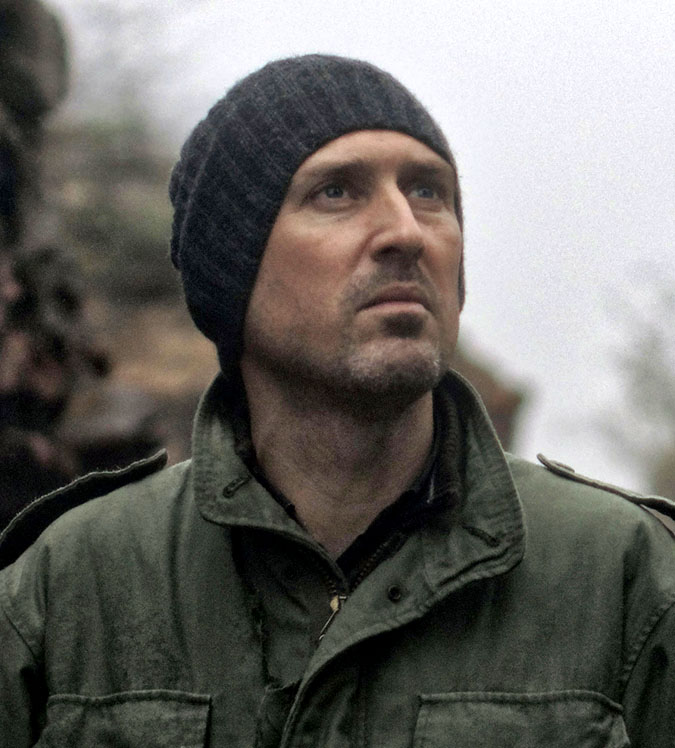
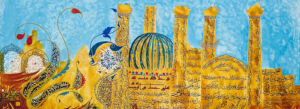


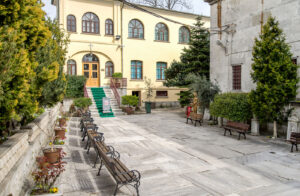

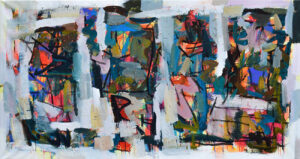


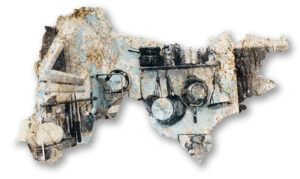

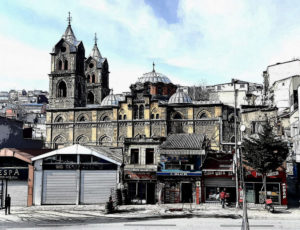

Ouch!